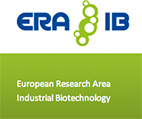Finished project:
MetaCat
A metagenomic collection of novel and highly efficient biocatalysts for industrial biotechnology

Chemical and bio-industries have a steadily growing demand for enzyme biocatalysts, which can catalyze a huge variety of different chemical reactions with high activity, substrate specificity and enantioselectivity. However, enzymes have been evolved by nature to work in living cells and under mild reaction conditions; consequently, most enzymes cannot be applied in industrial processes directly. Although it is known that few enzymes exist, which are well suited for biotechnological applications, the molecular basis is unknown. The MetaCat project will deliver innovative tools and knowledge for the identification of such robust “all-round frequent hit” enzymes (AFHs).
Metagenomic resources will be exploited by novel function- and sequence-based screenings to identify nitrilases, transaminases, ketoreductases, glycosyl hydrolases and lipases/esterases. A combination of metagenomics and metacatalysis will be used together with structure-based and high-throughput technologies, generic model substrates mimicking challenging chemical synthesis steps, next generation sequencing technologies as well as in silico data mining. New genetic tools using synthetic biology approaches will be developed to construct a cell-free function-based screening platform for faster and improved screening. An innovative single-cell laser trapping technology will be established to give access to a new previously unknown enzyme diversity.
The identified enzymes will form a marketable versatile biocatalyst collection together with a comprehensive database and can be used as starting points for modeling and in vitro evolution experiments. They will be applied to improve chemical production processes regarding e.g. timelines, purity of the products, environmental sustainability and will lead to value-added products. Thus, MetaCat will contribute to shorten timelines for development of biotechnological processes and thus to make industrial biocatalysis more attractive and profitable.

